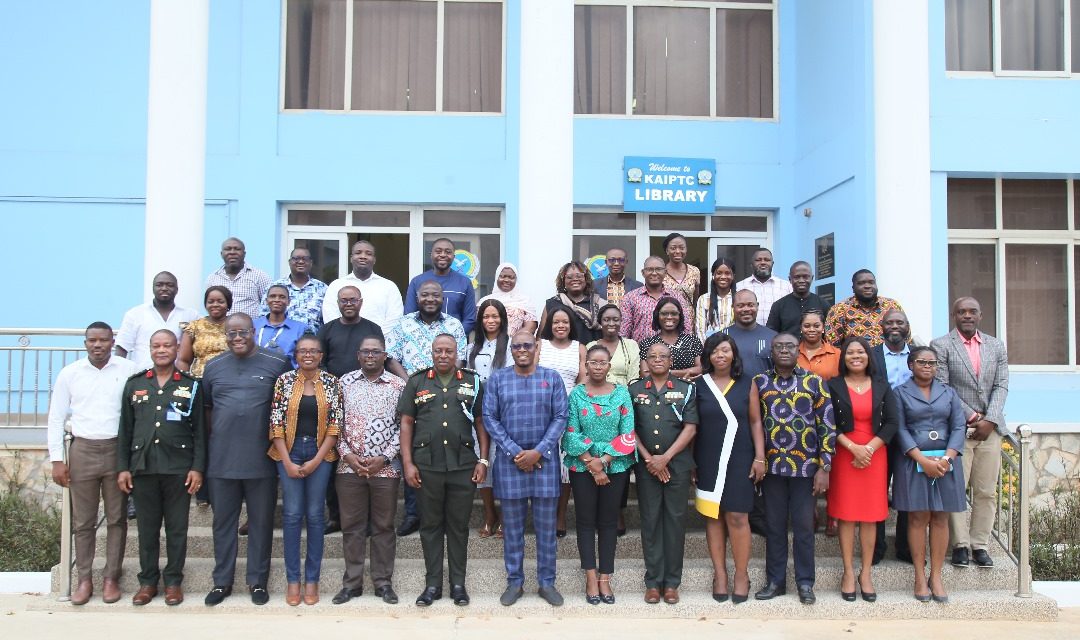KAIPTC to opens more campuses across Africa and in Ghana Kofi Annan International Peacekeeping Training Centre (KAIPTC) is set to establish campuses across Africa, including Lagos in Nigeria. Domestically, KAIPTC plans to establish satellite campuses in many regions, starting with the University of Development Studies in Tamale in the Northern Region. The UDS Centre will first roll out degree programs in peace and security, followed by diploma and eventually master’s degree programs. This expansion aims to broaden the reach and scope of courses and programs offered by the Centre. Additionally, the Centre plans to introduce degree courses in security studies to equip young graduates with the tools to contribute to peace and security in their communities. These initiatives are part of several strategies outlined in the Centre’s new five-year strategic plan spanning 2024 to 2028. Major General Richard Addo Gyane, Commandant of KAIPTC, announced these plans, emphasizing that they took into consideration emerging peace and security challenges in the region.



The new plan covers various thematic areas, including peace operations, stabilization, peacebuilding, governance, leadership, security, technology and peace, women, youth, climate and environmental security, and capacity building for private, multilateral, bilateral institutions, as well as regional organizations. During an interaction with editors, show hosts, and producers at the inaugural editors’ forum organized by the Centre, Major General Gyane noted that these thematic areas allow for comprehensive analysis of conflict drivers on the continent and the development of strategies to address them. He highlighted the Centre’s research program, which focuses on critical issues such as conflict analysis, small arms and light weapons, maritime security, terrorism, and violent extremism. Major General Gyane pledged the Centre’s commitment to generating knowledge and providing evidence-based policies to inform African countries and international organizations in their efforts to achieve sustainable peace. He emphasized the importance of youth and women in the peace and security agenda, noting their significant role in shaping peaceful and secure Africa. Major General Gyane acknowledged the need for continuous growth and improvement while expressing regret that despite KAIPTC’s significant reputation in the sub-region and among international partners, its recognition in Ghana is not as widespread.
He sees media partnerships as an opportunity to raise awareness about KAIPTC’s activities and to position the Centre as a leading hub for peace and security issues in Africa. The Centre aims to contribute to peace consolidation in Africa by enhancing the capabilities of civilians, police, and military personnel to participate in peace operations on the continent. Additionally, it actively engages in research and policy development. He mentioned that the government contributes 10% of the funding of the centre, while revenue from courses and support from partners cover the rest. However, amidst global financial challenges, he expressed concern over the declining financial support from partners, necessitating measures to boost Internally Generated Funds (IGF). To address this, the Centre is establishing a Business Development Unit tasked with devising strategies to mobilize funding from the private sector. He also mentioned that the Centre is actively engaging its partners to influence the situation in Mali, Burkina Faso, and Niger to promote stability. Dr. Emma Birikorang, Acting Director of the Faculty of Academic Affairs and Research (FAAR), advised assessing one’s track record, publications on the subject matter, and fieldwork to determine who qualifies as a security expert. She identified climate change, which continues to limit economic opportunities, as a major contributor to insecurity on the continent, leading many to join insurgent groups. Additionally, she noted that policymakers often consult the Centre for guidance on managing these issues.
The Kofi Annan International Peacekeeping Training Centre (KAIPTC) has trained a total of 31,049 individuals in peace and security over the past 20 years since it initiated training programs in 2004. Of these trainees, 71% are males and 29% are females, reflecting the male-dominated nature of the security services. The center offers a diverse range of over 400 courses in peace and security, providing participants with the necessary skills for engagement in peacekeeping operations, media processes, and conflict resolution. Established in 1998, KAIPTC was founded to share its extensive experience in peacekeeping with others in the sub-region. It commenced its operational activities in 2004 and has since been mandated to deliver internationally recognized capacity-building training programs, academic programs, and research in peace and security.





